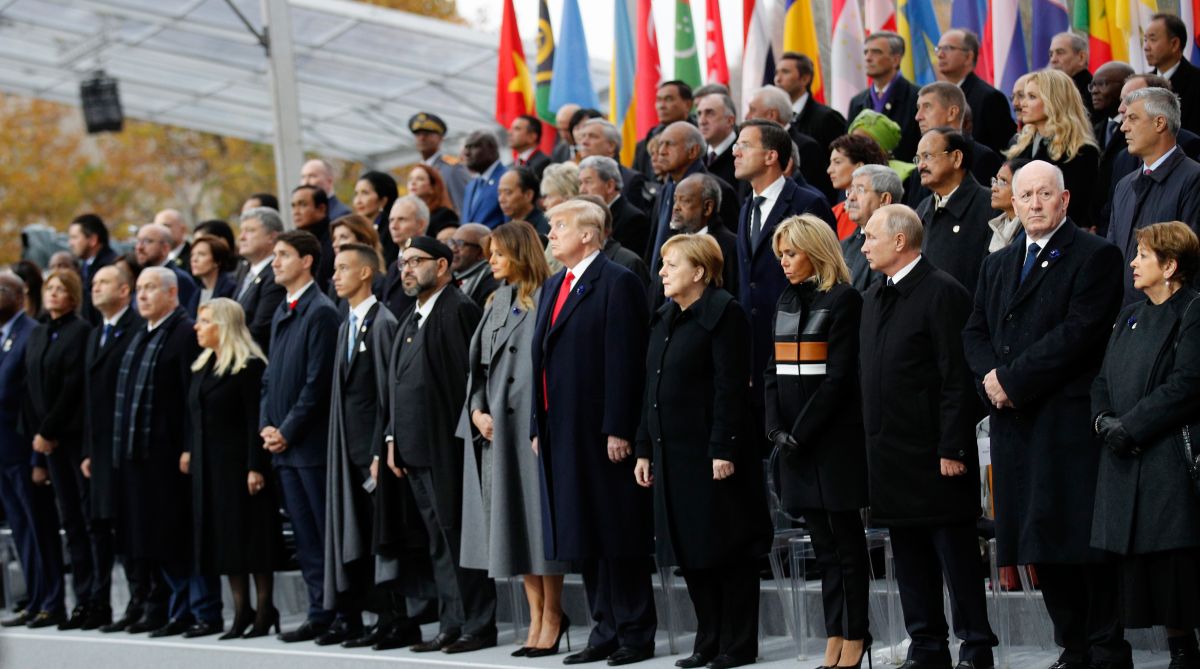One hundred years after World War I ended, the saddest thought on Armistice Day must be the almost relentless danger of wars and extremism that have threatened the world’s peace and prosperity. Storm-centres dot the world of 2018 and much as the leaders of Europe and the US commemorated the fallen on November 11 ~ the day the Armistice was signed ~ the comity of nations ought also to reflect on the belligerence that has ignited conflicts over the past century.
This is no less critical than Sunday’s grandstanding in Paris, attended by Donald Trump, Vladimir Putin, Emmanuel Macron and Angela Merkel. The world leaders, not to forget Theresa May who was in London to attend the ceremonials at the Cenotaph, are acutely aware that the nations fought and failed to win peace.
Advertisement
A century after the historical Armistice, there is as yet no enduring peace. The fineprint of the anniversary must be that the momentous event (1914-18) marks a moment to reflect on the realities of the peace of yesterday and the peace of today.
On Sunday, Trump, Macron, Merkel, and Putin stood together to mark the centenary of the end of the First World War, in which all their nations fought and failed to win peace. On Remembrance Day, it would be pertinent to recall that the US President, Woodrow Wilson’s dream of a cooperative international order was vetoed by a recalcitrant Republican- Senate Congress and he was shortly supplanted by a string of Republican presidents, with the most isolationist and protectionist instincts.
The contrast between Wilson’s internationalism and principles stands in stark contrast with the belligerent approach of President Trump, who, with the exception of North Korea, cannot see an international opponent without starting a war, be it diplomatic, economic or actual. In 2018, the world is almost as fraught as it was in 1914. Not that Russian-American relations today are less complex.
A century ago, the emergence of a hostile Communist regime was countered by America with troops, and the US refused to recognise the Soviet regime. The rest is history. The White House has now expressed its displeasure about President Putin’s expansionism, though not its interference in US elections. Of the great powers, as they were once called, only the Franco-German relationship is stronger today than a century ago, and through their co-leadership of the European Union, they are closer now than ever before, sharing a currency, the political structures of the EU and a pledge to build an “ever closer union” in Europe.
The war of 1914-18 casts a long shadow. The violent politics of the Middle East can trace their origins to the 1917 Balfour Declaration that pledged the creation of a Jewish state in Palestine, and the dismemberment of the Turkish empire, with the creation of Saudi Arabia, Iraq and Syria. The world is still dealing with that legacy, not least the extremist challenge. History has been quirky these past 100 years.











